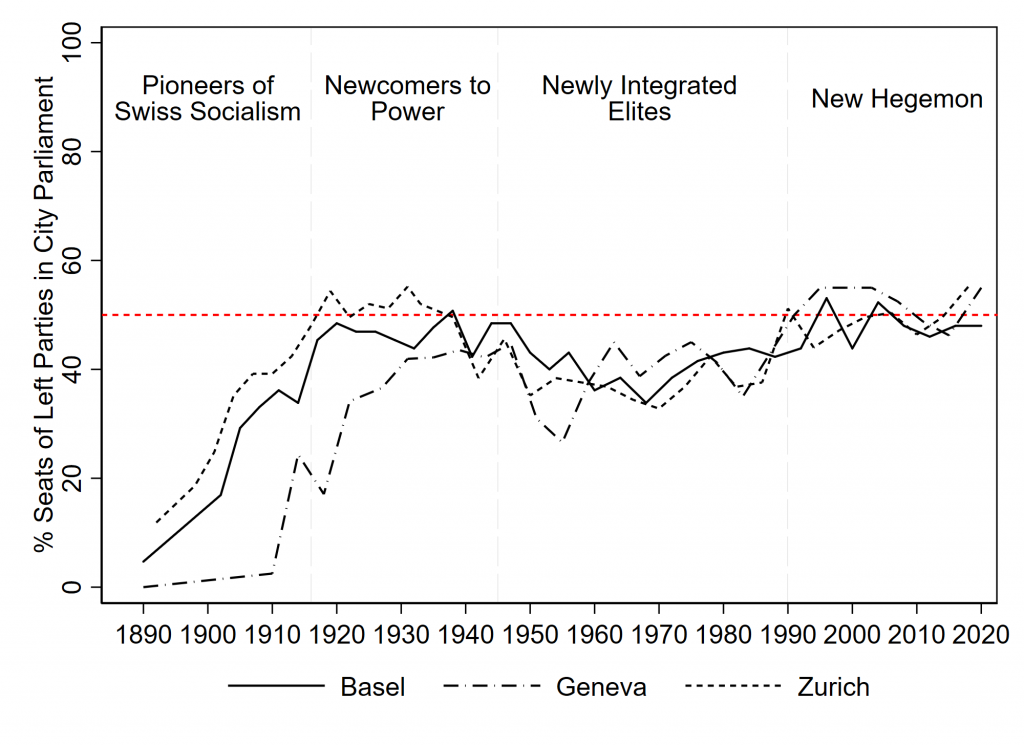Sinergia team members Baptiste Antoniazza, André Mach, and Michael Strebel have co-authored a paper on the long-term evolution of the political left in Swiss cities. Nowadays, many cities in post-industrial societies are strongholds of left and progressive political forces. This urban left hegemony has not always been in place, however. Over the course of the 20th century, cities in Western countries have experienced different waves of left-progressive and right-conservative dominance. The aim of the paper is to trace these developments in more detail in the three largest Swiss cities over the course of the last 130 years to understand the evolution of left-progressive parties from counter elites to new urban hegemons. The authors take two steps to understand these developments and to document these long-term changes and transformations of political elites in Swiss cities. First, they provide a periodization of the political strength of left-progressive parties in the three major Swiss cities (Basel, Geneva and Zurich) in identifying key moments for their affirmation, access to power and integration with local political institutions. In a second step, they analyze the changes in the profiles of left-progressive political elites across these different periods. Based on a unique database including all political elites in the three cities for seven benchmark years (1890, 1910, 1937, 1957, 1980, 2000, 2020) they show that in terms of educational and professional background, left-progressive elites were clearly distinct from right-conservative elites during their first phase of dominance (1920-1940), whereas they have a more middle-class and academic background in their second phase of dominance (1990-).
→ Paper
